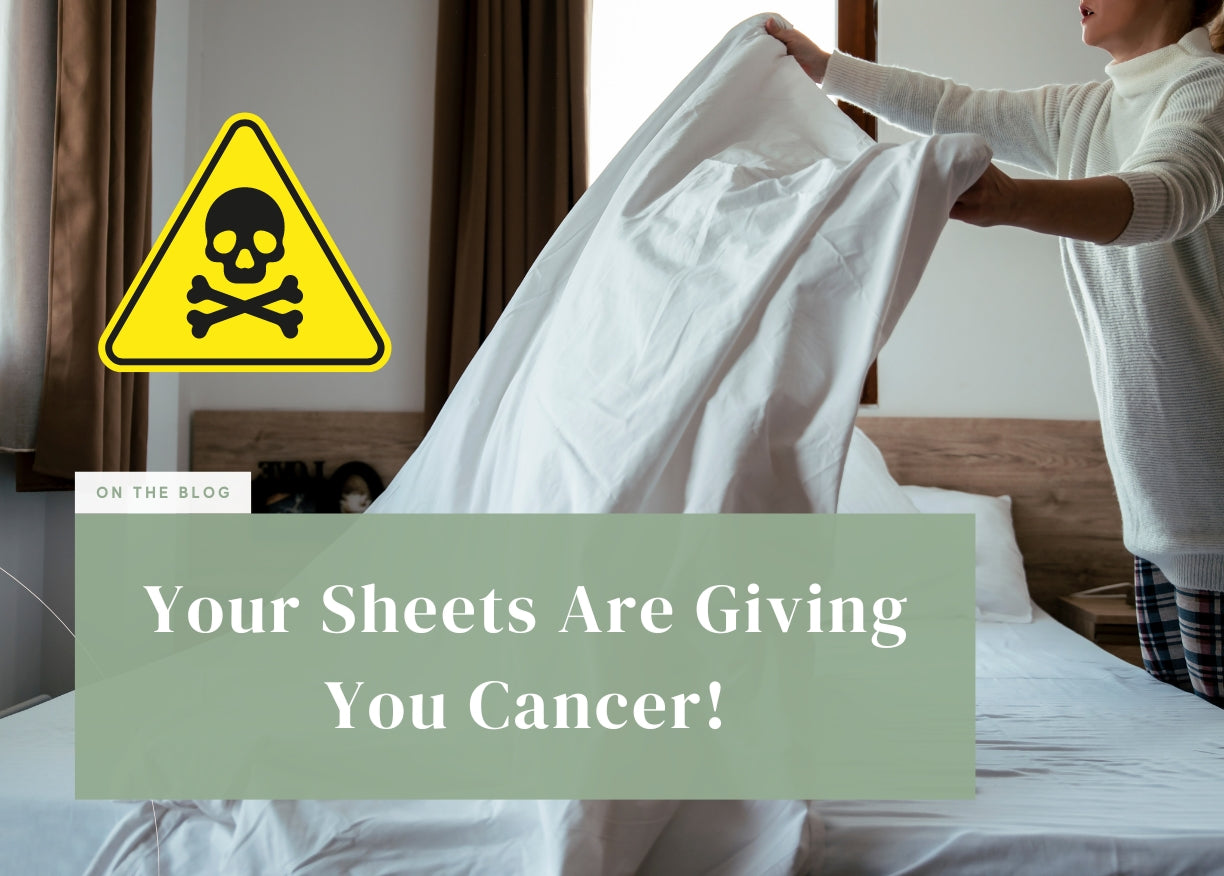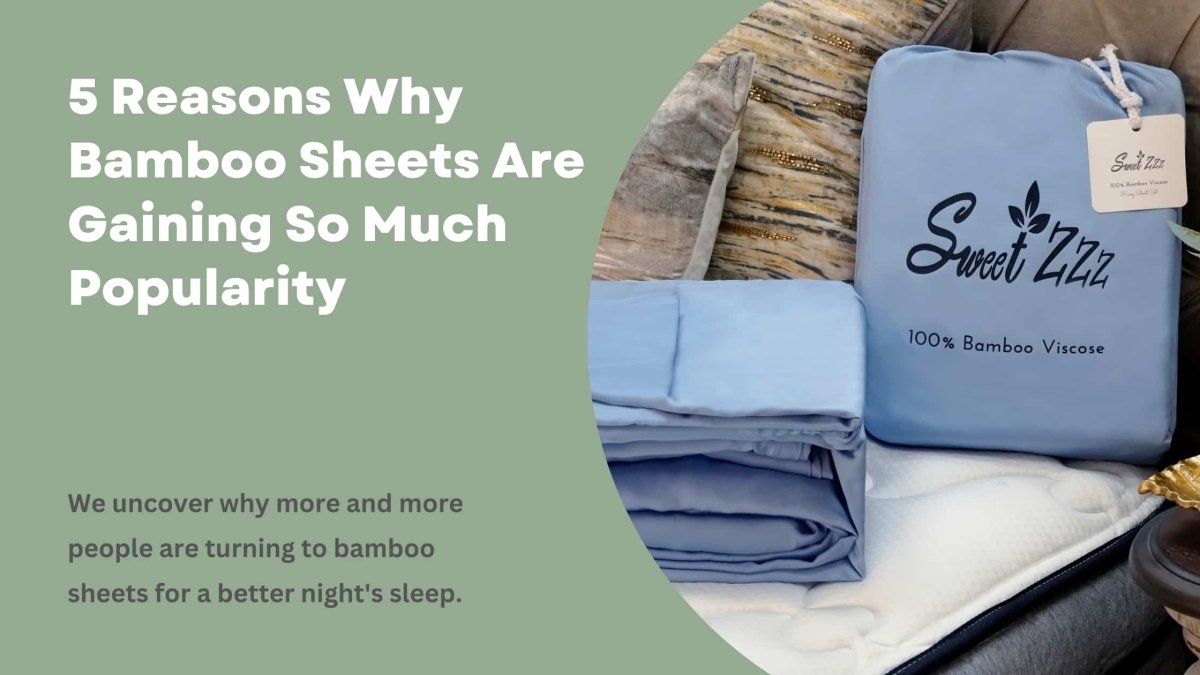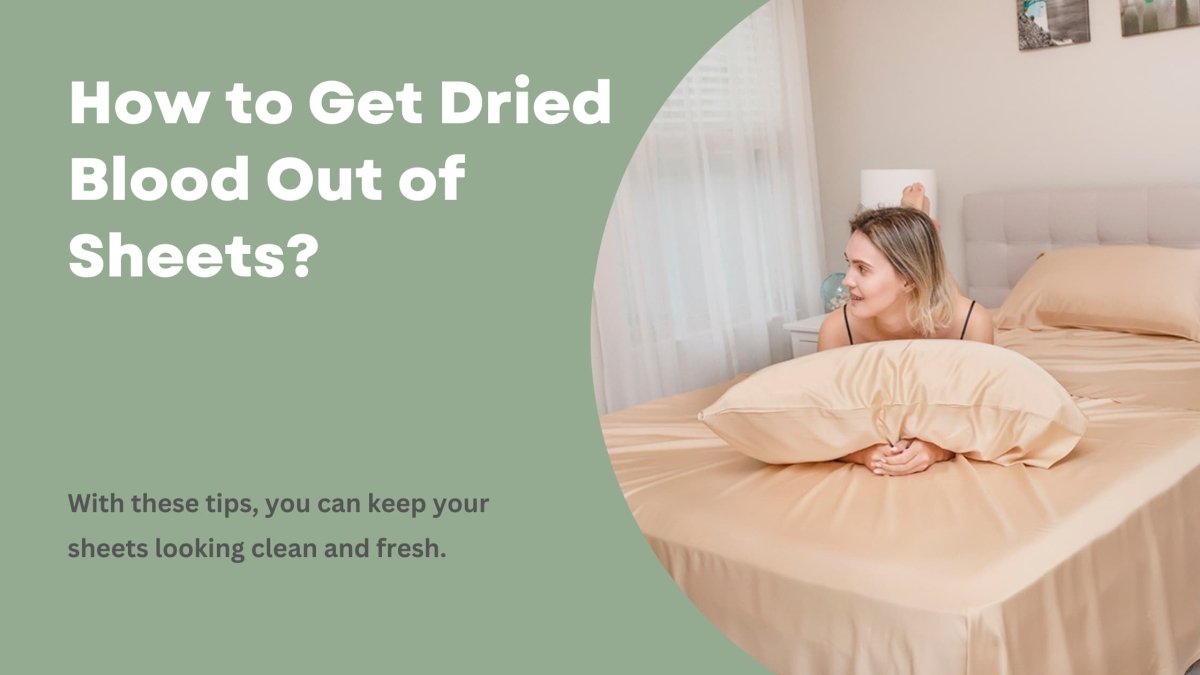Your Sheets Are Giving You Cancer!
The Hidden Dangers of Toxic Bedding
When we think of creating a healthy sleep environment, we often focus on finding the right mattress, but the sheets we sleep on every night can also play a significant role in our well-being. What many people don’t realize is that conventional cotton sheets and other synthetic bedding can contain harmful chemicals, including formaldehyde, that could pose serious health risks—including an increased risk of cancer.
The Hidden Chemicals in Conventional Sheets
Most people expect their bedding to be clean, soft, and comfortable. But conventional sheets, especially those labeled as wrinkle-resistant or "easy care," often contain a range of toxic chemicals that are anything but safe. Formaldehyde, a known carcinogen, is one of the most prevalent of these substances. It is frequently used in the production of cotton and polyester-blend fabrics to give them wrinkle-resistant properties. While this may seem convenient, the long-term exposure to formaldehyde poses significant health risks.

According to the National Cancer Institute (NCI), formaldehyde has been linked to several types of cancer, including leukemia and cancers of the nasopharynx. Prolonged exposure to this chemical, even in low levels, can irritate the respiratory system, cause skin rashes, and trigger allergic reactions. More alarmingly, continuous exposure over time increases the risk of cancer, especially for those who spend a lot of time in bed—like anyone with a sleep routine, or those with health conditions requiring bed rest.
More Than Just Formaldehyde: Other Harmful Substances
Formaldehyde isn’t the only culprit lurking in conventional sheets. Many synthetic and even some cotton sheets are treated with flame retardants, dyes, and other chemicals that can off-gas harmful volatile organic compounds (VOCs) into your bedroom environment. These chemicals can be absorbed through the skin or inhaled while you sleep, posing long-term health risks.

The Environmental Working Group (EWG) has raised concerns about the widespread use of chemicals in textiles, including perfluorinated compounds (PFCs) and phthalates, which have been linked to hormone disruption and developmental issues in children. As we sleep, our bodies are supposed to be in a state of rest and recovery, but exposure to these chemicals can burden our immune system and negatively impact our health.
The Solution: Safe, Eco-Friendly Bamboo Sheets
So what’s the alternative? The good news is that you don’t have to compromise on comfort or safety. Bamboo sheets offer a naturally eco-friendly and healthier option compared to traditional cotton and synthetic bedding. Bamboo is inherently resistant to pests and doesn’t require harmful pesticides or fertilizers, making it a much safer material for bedding.
The Sweet Zzz Bamboo Sheets, for example, are made from 100% organic bamboo, which is grown without harmful chemicals. They are naturally hypoallergenic, breathable, and free from toxic substances like formaldehyde and VOCs. Unlike conventional sheets, bamboo sheets are processed without the use of harsh chemicals, providing a safe and non-toxic alternative for your bed.
In addition to being a safer choice for your health, bamboo sheets are also environmentally friendly. Bamboo is a sustainable resource that grows rapidly without the need for harmful chemicals or excessive water. Choosing bamboo bedding means reducing your environmental footprint while improving your sleep environment.
Final Thoughts
It’s easy to overlook the dangers hidden in everyday products, especially something as seemingly innocent as your bedsheets. However, the truth is that many conventional sheets contain toxic chemicals that can pose serious health risks over time, including cancer. Making the switch to organic, eco-friendly bedding like Sweet Zzz Bamboo Sheets can protect you and your family from these dangers, offering peace of mind and a safer, healthier sleep environment.
Are you ready to make the switch to safer, non-toxic sheets? Your health could depend on it. For more information on the risks associated with conventional bedding, explore resources from the National Cancer Institute and the Environmental Working Group.




